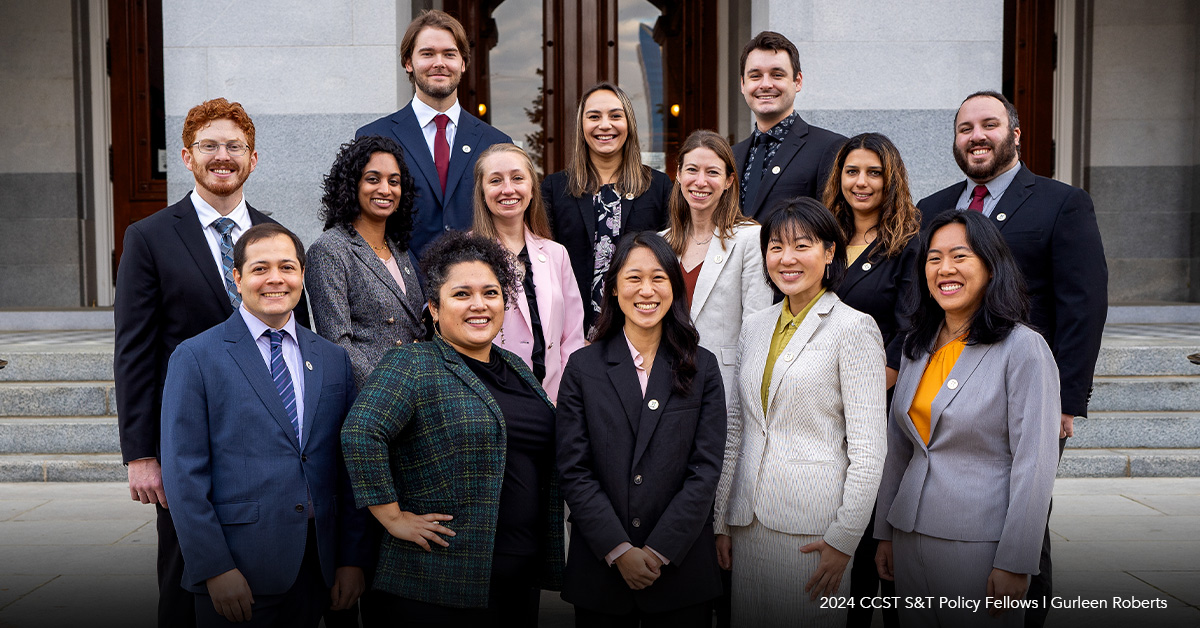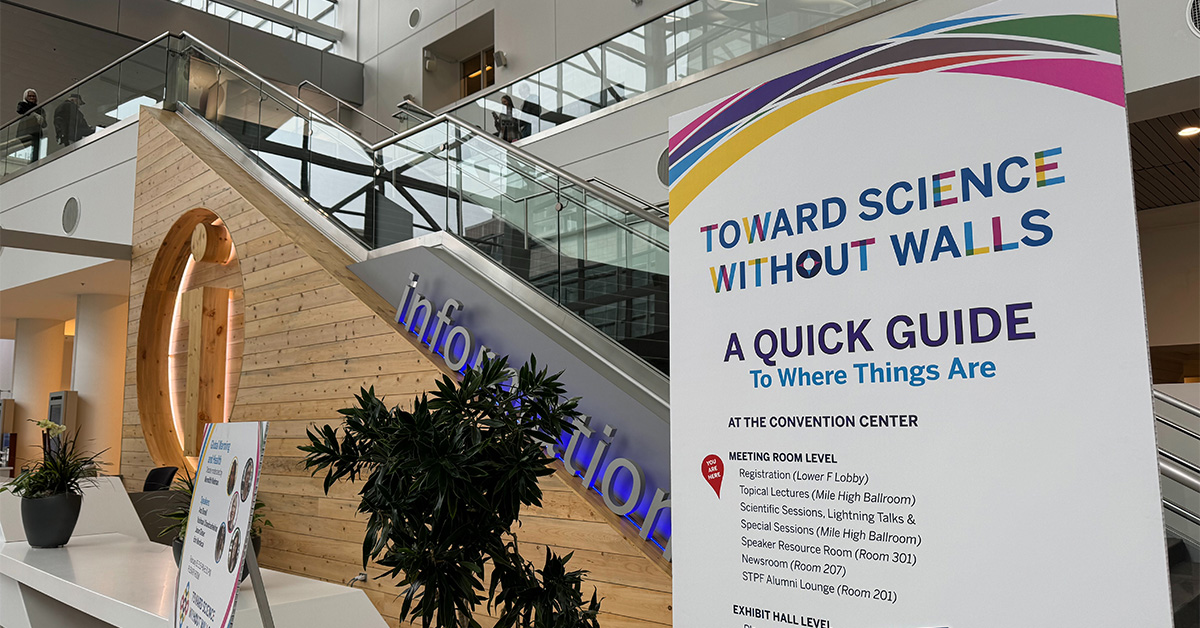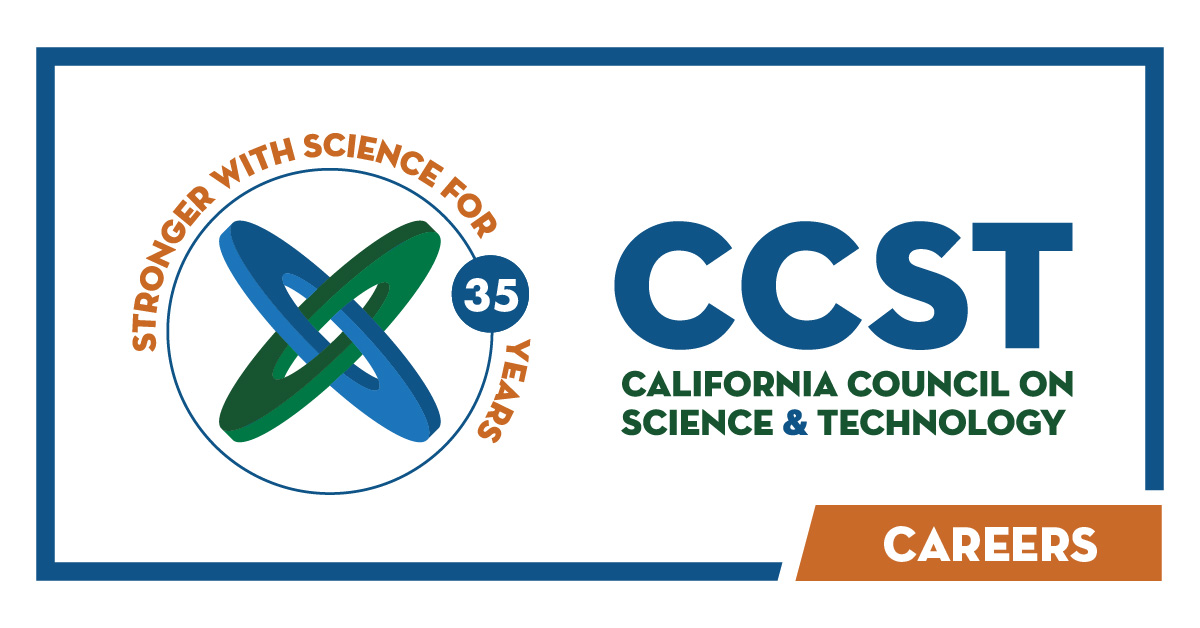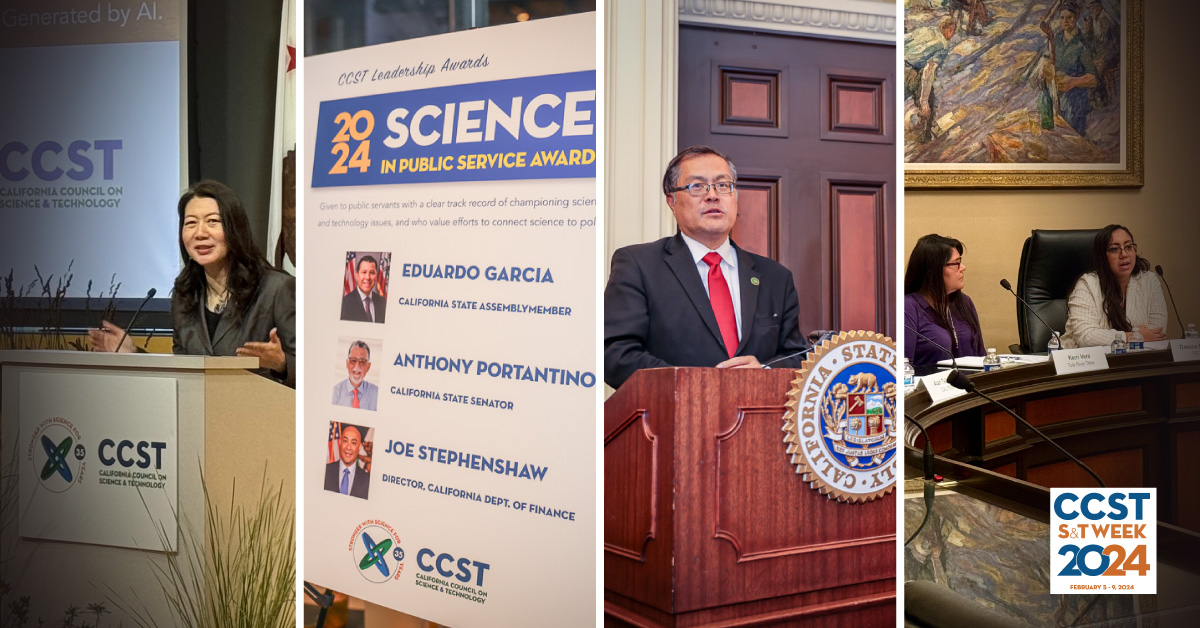Cal TAC Releases New Report on Digitally Enhanced Education Symposium
March 27, 2014 | CalTAC, CCST Newsroom | Contact: M. Daniel DeCillis
The California Teacher Advisory Council (Cal TAC) has released the latest in a series of papers discussing the efficacy of digitally enhanced education, exploring what works, for whom, and under what conditions in classroom settings.
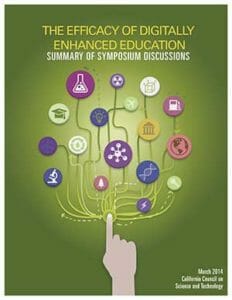 A CalTAC convened symposium, one in a series supported by the Stephen D. Bechtel Jr. Foundation and the Stuart Foundation, was held on September 13, 2013, at the California Department of Education in
A CalTAC convened symposium, one in a series supported by the Stephen D. Bechtel Jr. Foundation and the Stuart Foundation, was held on September 13, 2013, at the California Department of Education in
Sacramento. This symposium brought together thought leaders and practitioners from the education, technology, policy, research, and philanthropic communities to explore the issue of efficacy in the field of digital teaching and learning. The meeting was designed as an ongoing conversation among those with distinct, but complementary perspectives on the efficacy of digitally enhanced education.
“It’s a good time for us to be thinking at the state level about setting expectations and supporting the kinds of technology-related changes we’re trying to make,” said Mary Vixie Sandy, Executive Director of the California Commission on Teacher Credentialing. “In both pre-service programs and on-going professional development, we need to create learning ecosystems that are self- perpetuating, with teachers coming to the environment prepared to act and be agents of teaching and learning.”
Discussions at the symposium revealed that research on the use of technology in education is strongest in enumerating learning theories, curricular design frameworks, approaches to teacher professional development, and assessment designs. However, this research falls short in terms of identifying what works in general, or in guiding instructional decision-making by teachers in the classroom.
In particular, participants noted that while individual success stories certainly exist, digitally enhanced education to date has not fulfilled its promise as a ‘great equalizer,’ and that teachers are not always comfortable with or able to effectively leverage the opportunities that the new technologies offer.
“We want things that are a benefit for 90% of teachers, not just the superstars,” said Jeremy Roschelle, Co-Director of the Center for Technology in Learning at SRI International. “Learning activity systems or packages that integrate curriculum, technology, and professional development need to be offered in right-sized modules or chunks that are significant enough to deliver change, but modest enough that teachers feel they can try them and not feel overwhelmed.”
This report offers recommendations to decision makers on developing sound, research-based approaches to the implementation of digitally enhanced education as a means of better measuring and understanding the impact that these technologies have on learning outcomes. Bringing together thought partners strategically placed within California’s education and policy communities allows these key players and implementers to pose specific actions and next steps in addressing the challenges and opportunities to enhance learning through emergent technologies.
CalTAC members emphasized in the report that “We must shift from thinking about technology as an add-on and move toward a more integrated understanding of what is possible.”

